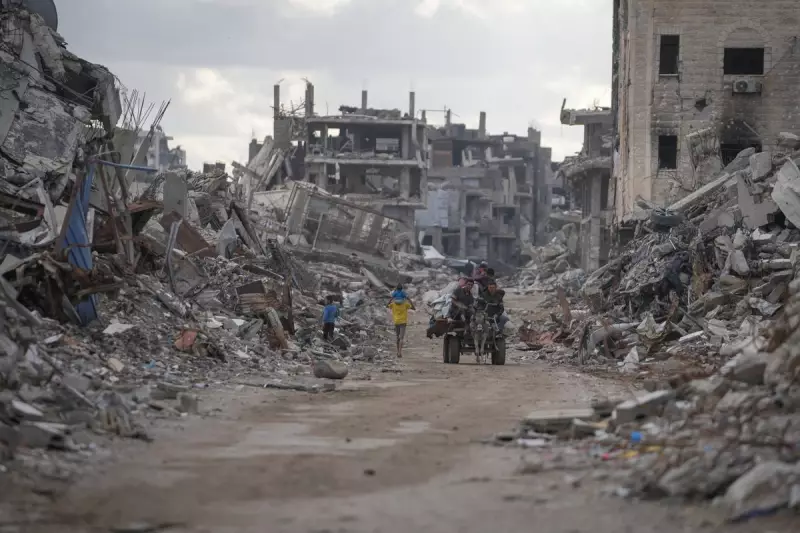
The United Nations Security Council has given its crucial backing to a US-authored resolution authorising an international stabilisation force for Gaza, following nearly two weeks of intense diplomatic negotiations. The vote represents a significant milestone for the fragile ceasefire between Israel and Hamas and outlines a potential, though contentious, future pathway towards an independent Palestinian state.
A Fragile Path Forward
The resolution, which passed with a vote of 13-0, endorses President Donald Trump’s 20-point ceasefire plan. This plan calls for the creation of a transitional authority known as a Board of Peace, which Trump would head. Crucially, the resolution authorises an international stabilisation force with a wide-ranging mandate. This force will be responsible for overseeing Gaza's borders, providing general security, and overseeing the demilitarisation of the territory. The authorisation for both the board and the force is set to expire at the end of 2027.
Arab and Muslim nations that had expressed interest in contributing troops to such a force had previously signalled that official Security Council authorisation was an essential prerequisite for their participation.
Diplomatic Hurdles and Compromises
The path to approval was not straightforward. Russia, which had circulated a rival resolution, abstained from the vote, as did China. There had been considerable concern within diplomatic circles that Moscow might use its veto power to block the US proposal.
A key factor in securing the resolution's passage was support from Arab and Muslim nations pushing for a durable ceasefire. The US mission to the UN distributed a joint statement with Qatar, Egypt, the United Arab Emirates, Saudi Arabia, Indonesia, Pakistan, Jordan, and Turkey, all calling for the "swift adoption" of the American plan.
During the nearly two weeks of negotiations, Arab nations and Palestinian representatives successfully pressed the United States to strengthen the original, weak language concerning Palestinian self-determination. The final, revised text states that after the Palestinian Authority implements reforms and the redevelopment of the devastated Gaza Strip advances, "the conditions may finally be in place for a credible pathway to Palestinian self-determination and statehood." It further adds that the United States will establish a dialogue between Israel and the Palestinians to agree on a political horizon.
This revised language, however, drew immediate criticism from Israeli Prime Minister Benjamin Netanyahu, who vowed to oppose any attempt to establish a Palestinian state, a long-held position of his government.
Details of the US Proposal and Rival Plans
The vote took place amid hopes that the fragile ceasefire in Gaza would hold. The conflict was reignited by Hamas’s surprise attack on southern Israel on 7 October 2023, which killed approximately 1,200 people. Israel’s subsequent military offensive, lasting over two years, has resulted in the deaths of more than 69,000 Palestinians, according to the Gaza health ministry, which reports the majority are women and children.
Russia's rival proposal, circulated last week, featured stronger language in support of an immediate Palestinian state alongside Israel and stressed that the West Bank and Gaza must be united under the Palestinian Authority. It also removed references to the transitional Board of Peace and instead asked the UN Secretary-General to provide options for an international force.
The approved US resolution is specific about the stabilisation force's duties. It is tasked with ensuring "the process of demilitarizing the Gaza Strip" and "the permanent decommissioning of weapons from non-state armed groups," a complex challenge given Hamas has not fully accepted this step. The force is authorised "to use all necessary measures to carry out its mandate" in compliance with international law, which is standard UN language permitting the use of military force.
The resolution also outlines that the stabilisation troops will help secure border areas alongside a vetted and trained Palestinian police force, coordinate humanitarian aid flow, and consult closely with neighbouring Egypt and Israel. As the international force establishes control, Israeli forces will withdraw from Gaza based on agreed-upon standards and milestones linked to the demilitarisation process.





